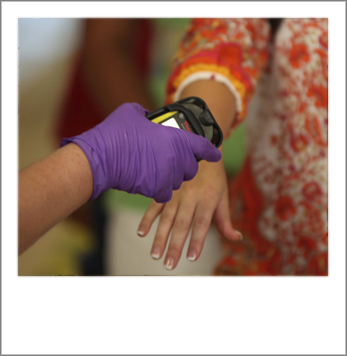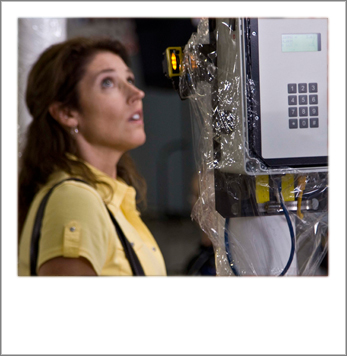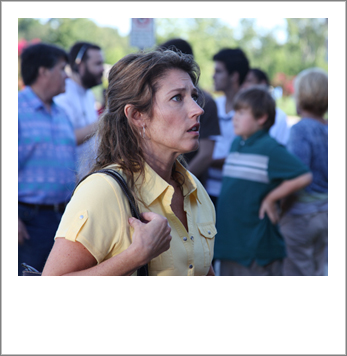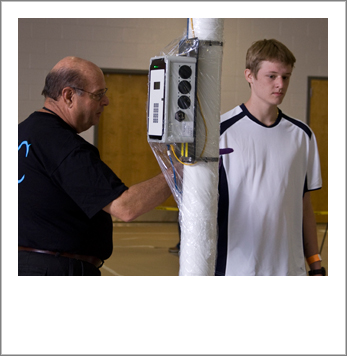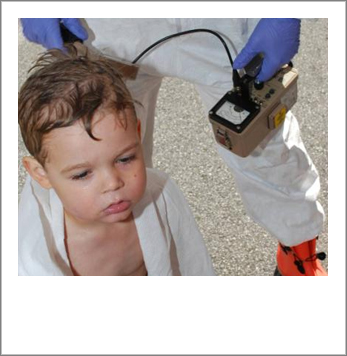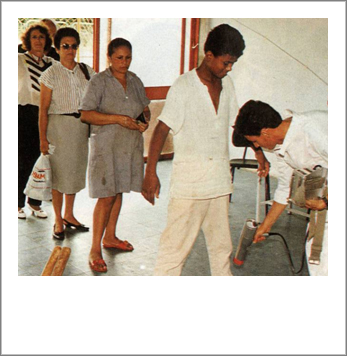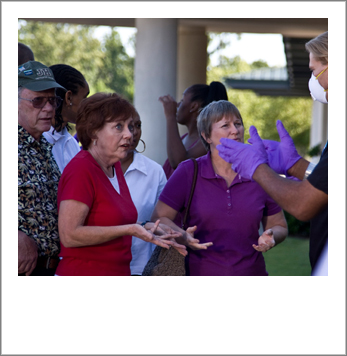Psychosocial Reactions Stigma
The remaining phases of inventory, disillusionment, and reconstruction are difficult and prolonged in a radiation disaster. In cases of severe contamination, such as in the Chernobyl disaster, reconstruction in the immediate area is impossible and residents were permanently relocated.
Stigma of those exposed to radiation further isolates individuals and prolongs recovery. For victims of severe radiation events, the return to “normal,” or pre-event mental health, may not occur for generations; often one must define a new “normal.” This also occurred in Goiânia.
The remaining phases of inventory, disillusionment, and reconstruction are difficult and prolonged in a radiation disaster.
Stigma of those exposed to radiation further isolates individuals and prolongs recovery.
For victims of severe radiation events, the return to “normal", or pre-event mental health may not occur for generations.
Dr. Jose Rozental
Former Director of Department of Nuclear Installation and Materials
Brazilian National Commission of Nuclear Energy
The psychological phases of a radiation disaster might be drawn differently than for other disasters. The green curve on this image shows how a serious radiation disaster might unfold with no perception of the threat, little warning, and a delayed impact.
In this interpretation, we see no heroic or honeymoon phases and prolonged disillusionment and recovery phases, which do not result in a return to the pre-event psychological state.
In this photograph, we see a physician standing in the doorway of what was once her apartment before the Chernobyl disaster. During radiation disasters, both people contaminated by radiological material, and those without contamination, can suffer adverse psychological effects.
Several factors may contribute, including a lack of understanding of radiation and the screening process, the delayed impact of exposure, and mistrust of who are unable to provide consistent and clear-cut guidance regarding safety measures.
In Goiânia, Brazil, the fear was so intense that some people fainted in the lines as they approached their moment of monitoring, and many complained of vomiting and diarrhea. This reaction was also found in those who had not been exposed to radiation, or contaminated, but were experiencing severe physical effects from the fear of radiation.
The immediate physical effects of a radiation disaster will vary greatly depending on the person’s distance from the source and the severity of the radiation exposure. Psychological distress will be great for individuals suffering intense exposures, serious contamination, and who may have had other physical injuries. Psychological consequences may include panic, grief, and questions such as “Why has God done this to me?” However, even in radiation disasters, distress lessens with time.
And it is important to remember that in many disasters, the majority of survivors experience normal psychological responses to the abnormal disaster event and recover without mental health interventions. Dr. Peter Houts explains more about the recovery phase that he and his team studied following the Three Mile Island incident.
The psychological phases of a radiation disaster might be drawn differently than for other disasters.
The green curve on this image shows how a serious radiation disaster might unfold.
- No perception of the threat
- Little warning
- Delayed impact
We see no heroic or honeymoon phases and prolonged disillusionment and recovery phases.
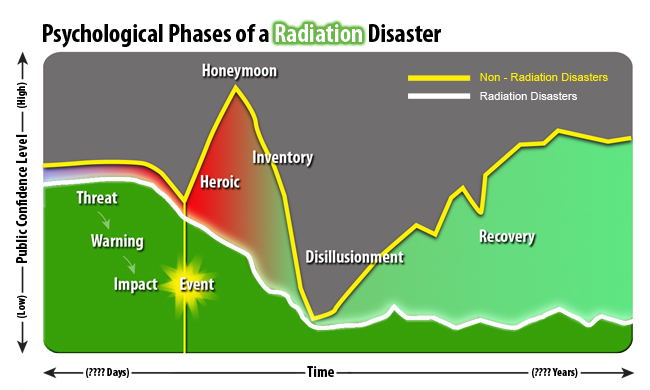
Psychological Phases of Disaster
In this photograph, we see a physician standing in the doorway of what was once her apartment before the Chernobyl disaster.
During radiation disasters, both people contaminated by radiological material and those without contamination, can suffer adverse psychological effects.
Several factors may contribute:
- Lack of understanding of radiation and the screening process
- Delayed impact of exposure
- Mistrust of officials who are unable to provide consistent and clear-cut guidance regarding safety measures
In Goiânia, Brazil, the fear was so intense that some people fainted while waiting to be monitored.
Those who had not been exposed to radiation, or contaminated, were experiencing severe physical effects from the fear of radiation.
Psychological consequences may include:
- Panic
- Grief
- Questions, such as, “Why has God done this to me?”
In many disasters, the majority of survivors experience normal psychological responses to the abnormal disaster event and recover without mental health interventions.
Dr. Peter Houts
Associate Professor of Behavioral Science (Retired)
Pennsylvania State University College of Medicine
Following radiation disasters, large numbers of the area’s population may feel concern about the amount and significance of their exposure and/or contamination to radioactive materials and the effect of exposure and/or contamination on their future health. For some, there is ongoing stress due to the uncertainty about the cause of any future illness and the fear that the radiation exposure and/or contamination will be responsible.
Some develop a lack of trust in authority due to conflicting information from experts and the lack of certainty of outcomes. Because the effects of radiation can be long-term, the consequences for health of future generations can mean an ongoing burden of anxiety and stress.
Those who are evacuated during a radiation event may have difficulty re-establishing trust in the safety of their homes and neighborhoods. Lingering fears of contamination from objects and places they once held dear will need to be addressed.
Public and widespread use of radiation detection devices, even to the point of excess, and examinations by unbiased experts may be necessary to help returning survivors re-establish comfort in their surroundings.
Let’s hear how this occurred in Goiânia from Dr. Rosental:
Following radiation disasters, large numbers of the area’s population may feel concern about the amount and significance of their exposure and/or contamination.
For some, there is:
- Ongoing stress due to the uncertainty about the cause of any future illness
- A lack of trust in authority due to conflicting information from experts
Because the effects of radiation can be long-term, the health consequences for future generations can mean an ongoing burden of anxiety and stress.
Trust issues and lingering fears will need to be addressed.
Excessive use of radiation detection devices and examinations by unbiased experts may be necessary to reestablish comfort.
Dr. Jose Rozental
Former Director of Department of Nuclear Installation and Materials
Brazilian National Commission of Nuclear Energy
We have already mentioned the challenge of stigma for victims of a radiation disaster. In past instances, such as in Goiânia, Brazil, because of the fear of radiation, assistance to victims was denied from physicians and other health providers, and even family members. In addition, neighbors, community members, and potential volunteers were unwilling to provide aid.
In Goiânia, Brazil, social stigma was widespread. Area residents protested against caskets being buried in the local cemetery. When residents from the region traveled to other parts of the country, they were turned away from hotels and their cars were stoned. Agricultural products from the region were banned. These reactions are unfortunate and, hopefully, will not be repeated in the future.
Those knowledgeable about radiation understand that there is no need to deny help to survivors reporting to community reception centers or health facilities. Social distancing is unnecessary and fear-based.
In past instances, because of the fear of radiation, assistance to victims was denied from:
- Physicians and other health providers
- Family members
- Neighbors
- Community members
- Potential volunteers
In Goiânia, Brazil, social stigma was widespread:
- Residents protested against caskets being buried in the local cemetery
- When residents traveled to other parts of the country, they were turned away
- Agricultural products from the region were banned
Help should not be denied to survivors and social distancing is unnecessary and fear-based.




